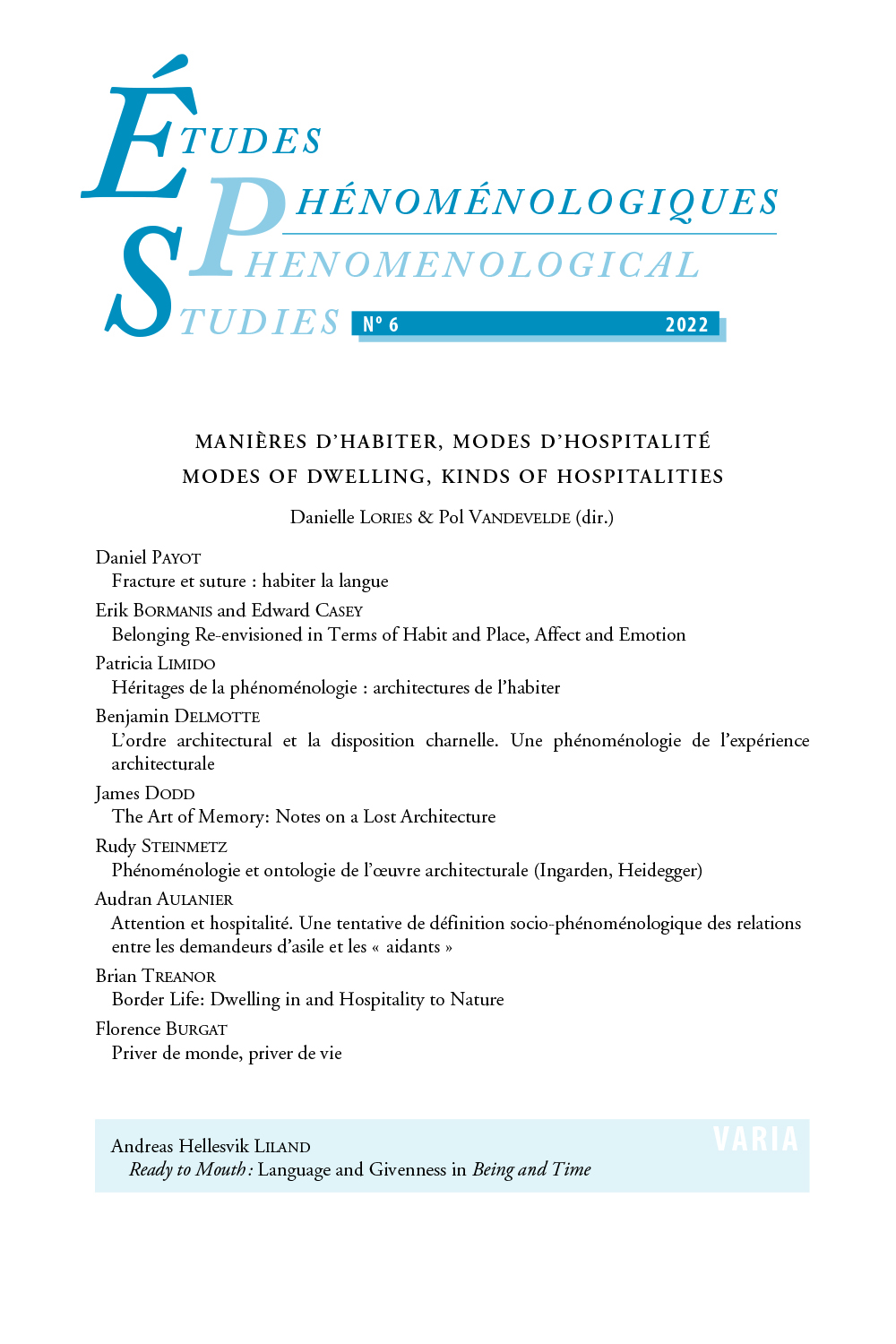 previous article in this issue previous article in this issue | next article in this issue  |

Preview first page |
Document Details : Title: The Record of a Crisis Subtitle: Phenomenology and the Final Stage of Bourgeois Philosophy Author(s): CARBONE, Guelfo Journal: Etudes phénoménologiques - Phenomenological Studies Volume: 8 Date: 2024 Pages: 63-86 DOI: 10.2143/EPH.8.0.3292512 Abstract : Herbert Marcuse’s early philosophical inquiries are carried out at the interplay between phenomenology and historical materialism. For Marcuse, the unfolding of phenomenology from Husserl to Heidegger elicited the discovery of historicity, and attributed to this notion all the concreteness that philosophy was eager to retrieve. Hermeneutical phenomenology, in particular, allows for an understanding of the philosophical basis for Marxism, that is, of historical materialism, in its reference to the entire domain of knowledge related to historicity. Marxism is chosen for a deeper, historical reason, as a 'revolutionary critique of bourgeois society'. While historical materialism operated as a 'correction' for phenomenology by showing the necessary consequence of the historicity discovered by phenomenology, namely, the urgency for revolution, phenomenology was able to grasp the critical change that affected the tormented epoch in which it developed. As Marcuse opportunely detected, this was the epoch of the downfall of the bourgeoisie, and, as a consequence, phenomenology presents itself as the record of the radical crisis of bourgeois culture. |
|


